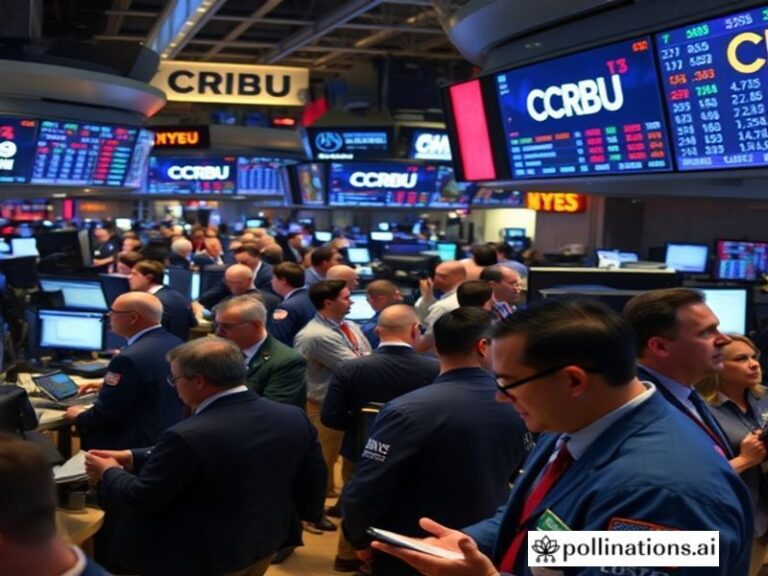Milwaukee’s Weather Apocalypse: The Global Supply Chain’s New Favorite Punchline
Milwaukee, Wisconsin—population 577,000, beer-per-capita champion of the Midwest, and, this week, the unlikely geopolitical barometer for the rest of the planet. While CNN loops footage of glaciers doing their best Titanic impression and the EU debates whether to classify “pleasant spring day” as a protected heritage item, Milwaukee has opted for a more avant-garde climate policy: three inches of slush, sideways hail, and a 37-degree temperature swing before lunch. Call it performance art with a wind-chill factor.
To the untrained eye, the city’s latest meteorological tantrum looks like the usual American excess. But zoom out and you’ll see Milwaukee is merely the test market for Earth’s new operating system, the one still in beta and apparently coded by an unpaid intern. Tokyo is already taking notes on how to weaponize lake-effect snow for next summer’s Olympics. Meanwhile, Delhi’s urban planners—ever the optimists—have bookmarked the National Weather Service livestream for tips on turning smog into sleet, the alchemy of our age.
The global supply chain, already held together by Zoom calls and wishful thinking, now shivers in real time with every Milwaukee cold front. Semiconductors stuck on I-94 turn into expensive popsicles; German automakers phone Wisconsin just to ask, “Is it still snowing?” like anxious parents checking on a college freshman. Each cancelled cargo flight reroutes through Dubai, where the cranes never sleep and the sheikhs shrug at our quaint notion of seasons. Somewhere in Davos, an economist updates a slide titled “Negative Externalities of the Polar Vortex” and bills the hour at $1,200. The rest of us just buy another pair of touchscreen gloves we’ll lose by April.
Climate scientists, bless their hearts, insist these oscillations are “statistically significant.” Translation: buckle up. The same models that predicted a 1.5°C rise by mid-century also missed the memo about Milwaukee declaring unilateral independence from spring. If this keeps up, the Intergovernmental Panel on Climate Change will have to add a new category: “WTF Events.” Investors, ever the romantics, are already shorting Florida real estate and going long on Great Lakes beachfront—because nothing says “hedge fund” like betting on Detroit becoming the new Cannes.
Of course, the human comedy plays out on smaller stages. Local television stations dispatch reporters to parking lots where the salt crunches like breakfast cereal. They interview residents who swear the weather was “better in ’78,” a year when, fun fact, the city nearly seceded from the union over disco and diesel shortages. One retiree, wrapped in three Packers blankets, claims the snow “smells different now.” He’s not wrong; microplastics have a bouquet all their own. In the background, a teenager livestreams the storm on TikTok, overlaying a K-pop track because irony is the last renewable resource.
The diplomatic implications? Subtle, but real. Canada, watching Milwaukee’s misery with the detached sympathy of an older sibling, quietly reroutes its excess vaccine shipments to Mexico. Ottawa’s logic: if America can’t handle a Tuesday in March, perhaps it shouldn’t be trusted with herd immunity. Beijing, ever the opportunist, offers to send emergency snowmelt drones—Made in Shenzhen, batteries sold separately. The State Department politely declines, citing “aesthetic concerns,” which is code for “we can’t admit China has better weather tech.”
And yet, amid the chaos, there is order. Milwaukee’s breweries have pivoted to producing “Blizzard Ales,” marketed with the tagline “Cold enough for you?”—a slogan focus-grouped in Helsinki and approved by sadomasochists everywhere. The cans come with a QR code linking to a live webcam of the brewing vats, steaming like hot tears against the frost. Sales are up 400% in Reykjavik.
So what does Milwaukee’s latest meteorological mood swing tell the wider world? Simply this: if the future arrives anywhere first, it’s probably wearing a parka and asking to borrow a shovel. Pack accordingly.







